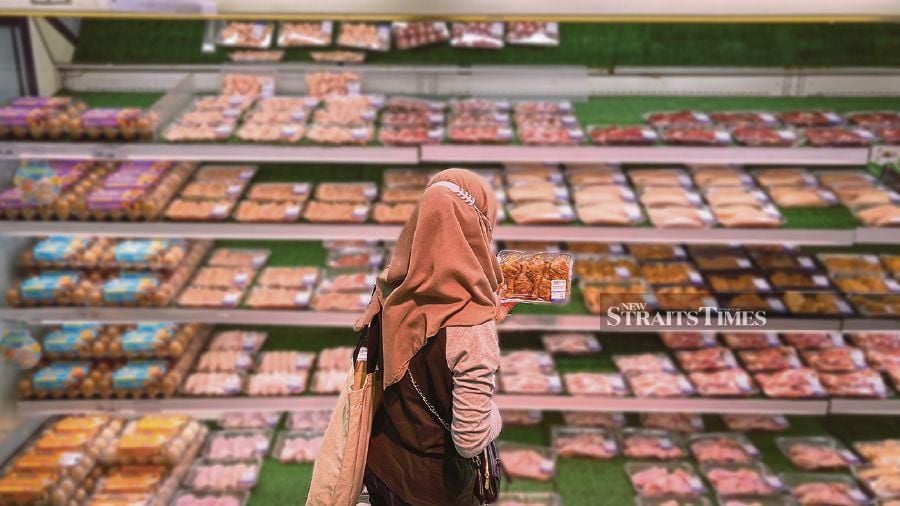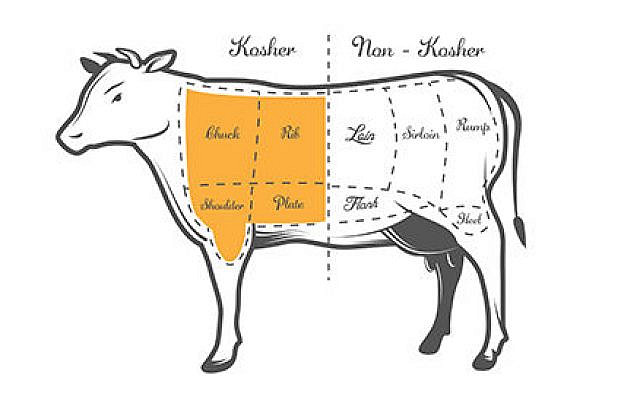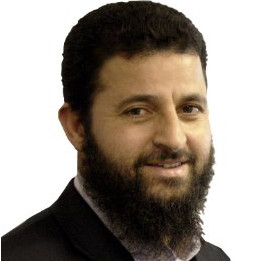
KUALA LUMPUR: Senior officers from no fewer than four government agencies are believed to be working hand-in-glove with a cartel specialising in bringing non-certified meat into Malaysia and passing it off as halal-certified products.
These senior officers, entrusted with the responsibility of ensuring that halal standards are upheld, have instead received money, and in some cases even women for sex, as bribes in order to turn a blind eye to the cartel’s operations and ensure that the its activities go undetected.
It is understood that the cartel has been in operation for more than 40 years.
It is believed the cartel imports meat from non-halal-certified slaughterhouses in a few countries, such as Brazil, Bolivia, Canada, Colombia, Spain and Mexico.
The only countries that have been certified by the Malaysian authorities for the import of halal meat are Australia, Argentina, Brazil, India, South Africa, Pakistan, Japan, New Zealand and the United States, with imports handled by the Malaysia Islamic Development Department and Veterinary Services Department.
The Malaysian Quarantine and Inspection Services Department, Customs Department and port police, meanwhile, are in charge of managing the supplies once they enter Malaysian ports.
The cartel’s years of operations means it has a solid system to ensure the products — from the slaughterhouses until they leave the ports for the markets — escape official scrutiny.
Sources speaking to the New Straits Times said the process began abroad, where government agency officers entrusted with supervising the quality of the meat at the slaughterhouses would sign off on the products whether or not they met Malaysia’s rigorous halal and quality standards.
A source said in some cases, the officers, after being bribed, would sign off on the products even before they arrived at meat processing plants for checks.
“Two agencies are largely responsible for issuing approvals for products from meat processing plants abroad. But the sheer number of meat products from plants of dubious quality entering Malaysia has raised questions about the system’s effectiveness.”
The source said once the cartel bypassed the first stage of inspections, it faced few problems bringing the products into the country via the country’s ports.
The three main areas of entry for shipments, the source said, were the Port Klang Free Zone, Westport and Northport.
The cartel, said the source, had over the years worked to secure “representatives” in government agencies based at the ports.
This, said the source, was made possible only with the involvement of very senior officers from agencies working with the cartel.
“One modus operandi involves using the Customs’ K8 form when the products enter the port. The K8 form means a shipment can only transit in Malaysia before being shipped out elsewhere.
“In this case, thanks to corrupt officers, the shipment, despite being declared as K8, passes instead through another channel.
“The officer manning the channel would receive a cash bribe from a ‘runner’ to greenlight the cargo to leave the port via trucks.
“This runner, a civilian, deals directly with the agency’s senior officer,” said the source.
The goods, said the source, would then be taken to one of several warehouses, where the meat would be mixed with halal-certified meat and repacked with fake halal logos, then enter the market.
The source said the cartel did this because importing halal meat from certified sources and getting them approved by the authorities was a costly endeavour.
“As such, by eliminating the halal-certification process, the cartel stands to make a hefty profit.”
The source said wholesalers and traders were then more inclined to source cheaper goods.
“As the cartel gives an assurance that the products are halal-certified, this ensures that there is a healthy demand for their goods.”
ARTICLE TWO
Cartel crackdown: Neither beef, nor halal
By Mohamed Basyir – New Straits Times
KUALA LUMPUR: The New Straits Times’ exposé of the activities of a syndicate, which smuggled in non-certified meat and sold it in Malaysia as halal products, has unearthed more startling revelations.
The frozen meat imported by the cartel from non-certified countries is not limited to beef, but also includes horse meat and kangaroo meat.
These items would, upon arrival in Malaysia, be mixed with beef in warehouses nationwide run by the cartel before being sold to unknowing suppliers.
Sources told the New Straits Times that among the stock they bring in are kangaroo meat, horse meat and beef. However, the beef is from animals of poor quality or even diseased, so it is obtained at much lower prices.
“The cartel buys the meat at up to 50 per cent cheaper than meat obtained from certified slaughterhouses and processing plants.
“The meat would then be shipped to Malaysia and ferried out via trucks and lorries to cartel warehouses, where it is mixed with certified halal meat.
“Coupled with it avoiding taxes and the procedures involved in importing certified halal meat, the cartel stands to make a healthy profit,” said a source.
It is understood that the cartel takes delivery of frozen imported meat at least three times a week from abroad.
The meat, imported from countries whose halal certifications are not recognised by Malaysian authorities, would arrive via ships at Malaysian ports.
According to the source, over 60 containers of these goods were brought in between November last year and April into Northport and Westport in Port Klang.
Upon arrival at the ports, the shipment would bypass checks and be made available for the market.
“We have determined that the cartel brings in 300 to 400 containers a month, which originate from non-certified processing plants as well as countries whose halal accreditations are not recognised by Malaysian authorities.”
These, said the source, include Canada, Colombia, Ukraine, Uruguay, Spain, Mexico, Bolivia, Paraguay, Hong Kong and China.
Countries whose processing plants’ halal accreditations are recognised by the Veterinary Services Department and Department of Islamic Development Malaysia (Jakim) are Australia, Argentina, Brazil, India, South Africa, Pakistan, Japan, New Zealand and the United States.
The source said the loss in potential government revenue from the smuggling is estimated to be around RM1.5 million a month.
The source said corrupt government officers were willing to take bribes of between RM150 and RM3,000 to close their eyes to enable these cargoes to be released.
Officers on the ground, meanwhile, allegedly receive payouts of between RM150 and RM500 to release each container.
Each container, said the source, had about 25 tonnes of meat, which would be sent to the cartel’s warehouses for repackaging and slapped with bogus halal stickers.
The products would be distributed to markets and wholesalers before being sold to consumers.
The NST yesterday frontpaged how senior and junior officers in at least four government agencies were bribed by the cartel to ensure that its supply of non-certified meat entered the country and bypassed checks.
A source told the NST that by importing non-certified meat and mixing it with meat from legitimate sources, the cartel profited from avoiding taxes and duties as well as the costs involved in the halal-certification process.
The report stated that the cartel’s activities had been going on for 40 years.
The report detailed the cartel’s years of operations meant that it had a solid system in place to ensure that the products, from the slaughterhouse until they leave the ports for the markets, escaped official scrutiny.
Jakim and the Veterinary Services Department are understood to be responsible for the certification and quality of the imported items.
The Malaysian Department of Quarantine and Inspection Services, Royal Customs Department and port police, meanwhile, are in charge of managing the supplies once they entered Malaysian ports.
ARTICLE THREE
Tesco, Mydin assure consumers its meat supplied from halal sources
By Mohamed Basyir – New Straits Times
KUALA LUMPUR: Two major food retailers have stepped forward to assure the public that frozen meat sold at their premises are sourced from legitimate certified halal suppliers.
A Tesco spokesperson told the New Straits Times that frozen meat sold in their hypermarkets are sourced directly from overseas abattoirs and hence, not linked to those supplied by a meat cartel which allegedly imports non-certified beef and passes them off as halal items in Malaysia.
“We have always appointed our suppliers to directly obtain meat from overseas abattoirs which are approved by the Department of Veterinary Services Malaysia as well as the Department of Islamic Development Malaysia (Jakim).
“None of our meat products are related to the meat cartel, hence we have not halted our meat sales,” said the spokesperson in an email to the NST.
Mydin, meanwhile, also assured consumers that its supply of imported meat is halal and safe.
Mydin Mohamed Holdings Bhd managing director Datuk Dr Ameer Ali Mydin said their meat supply is only sourced from two parties which the company trusts to deliver certified halal goods.
“As per our checks, we are not involved in sourcing from this said cartel.
“In any business, it is important that we are extra careful not to hurt any religious sentiments. This is something we are serious about,” he said.
The NST in its front page story on Monday had reported how a meat cartel, which has been in operation for 40 years, had bribed government officials to ensure that its imported meat, supplied from non-certified sources, enters the Malaysian market.
According to the report, the cartel uses proxy companies to prevent any direct links to the syndicate’s heads. The proxy companies which import the meat would bear Bumiputera or Muslim names in order to assure suppliers that it deals in halal products.
The cartel would also import kangaroo and horse meat, which would then be mixed with beef in Malaysia and stamped with fake halal logos before being sold to unwitting suppliers.
ARTICLE FOUR
The question asked in the article regarding the meat cartel is a valid one. This could be just a way of doing business in certain regions, irrespective of Halal/religion.
Are Malaysians exposed to contaminated meat too, asks MP
PETALING JAYA: Bukit Mertajam MP Steven Sim today stressed the halal meat cartel scandal is not just an issue affecting Muslims.
In a post on his Twitter account, the DAP lawmaker pointed out that the scandal has also raised doubts about the quality and nutrition of food being imported into the country.
“The issue of meat cartels is not just a problem for Muslims. Now, the quality and nutrition of all our food is a question mark,” he said.
For full article go to:



